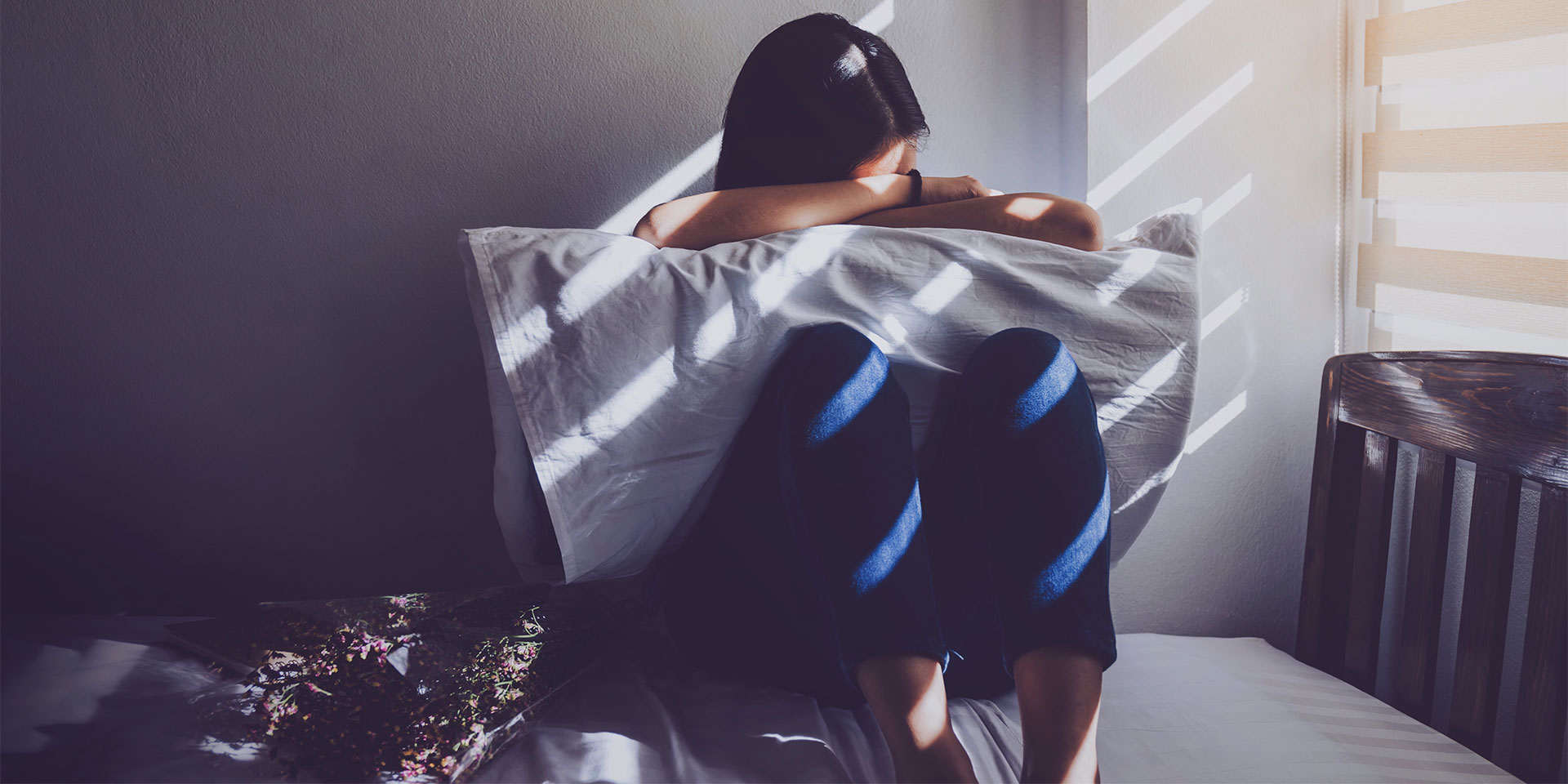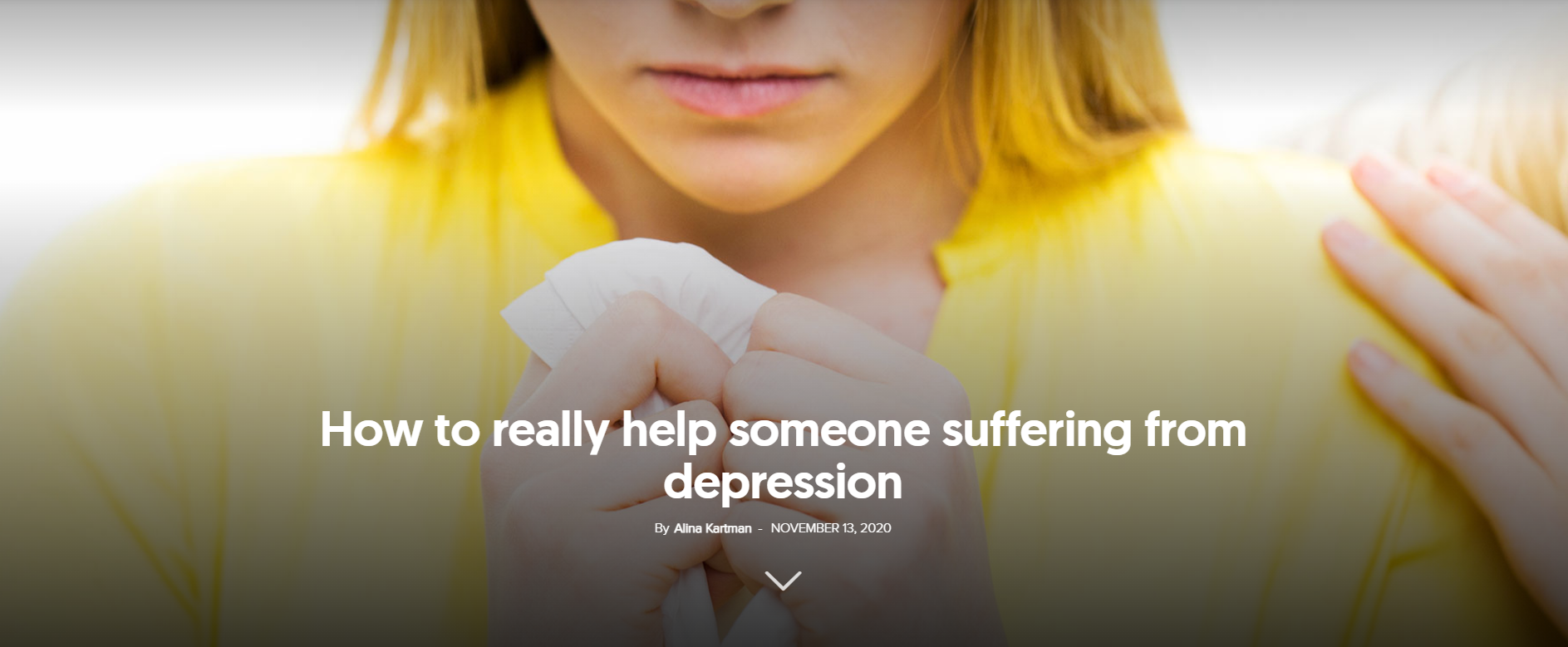In 2020, depression became the second leading cause of global morbidity and it is projected to be the first in 2030,[1] according to a forecast by the World Health Organization (WHO).
Many social and personal challenges, such as the death of a spouse, divorce, the death of a close family member, marital separation, serious injury or illness, unemployment, detention, the death of a close friend, pregnancy, and business readjustment contribute to the onset of depression.
The most common types of depression
Depression can affect anyone, regardless of gender, age, intellectual background, or socioeconomic status, but not all of us respond equally to these triggers.
| Specialists point to the existence of several types of depression: endogenous depression (the causes of which are biological, hereditary), psychotic depression (manifested by deep sadness, difficulty thinking, a soft voice, physical immobility characterized by drooping shoulders and looking down), dysthymic disorder (people have a depressive mood most of the time and describe their mood as “sad” or “depressed”, see themselves as uninteresting or incapable), postpartum depression (which may occur in mothers in the first months after birth, affecting one in eight women after pregnancy) and seasonal depression, or seasonal affective disorder (a state of mental and physical discomfort associated with changing seasons). |
Reactive depression is the most common type and is caused by a traumatic, difficult event that a person goes through at some point in their life. The onset of this type of depression does not always occur immediately after the trauma, or in its proximity, but most often at some time down the line after its occurrence.
An individual’s emotional reaction to the factors that accentuate depression depends very much on the patient’s medical history: the existence of a personality disorder, or an anxiety disorder, as these facilitate the onset of this silent killer.
Symptoms such as a depressed mood, irritability, nervousness, or a lower threshold for tolerating frustration attest to the existence of reactive depression.
A sufferer from depression may smile, or even deny that there has been a change in their mood. Instead, they might complain of persistent pain (the most common being back pain), which does not yield to medication, and usually does not have a physiological cause. Likewise, the individual may have bouts of crying or, conversely, an inability to feel emotions—a numbness.
The psychological manifestations associated with this type of depression can be observed in a lack of self-confidence, low self-esteem, indecisiveness, a decreased ability to concentrate, social isolation, pessimistic thinking, and self-blame. Feelings of tiredness, restlessness, changes in body weight, and sleep disturbances may also occur.
Depression prevention and treatment programs
As with any condition, early treatment is ideal. The later the visit to the therapist, the more difficult it will be to get a beneficial outcome from any treatment. Left untreated, depression can progress to a chronic state, with significant deterioration of the individual’s quality of life, and doctors say that suicide or substance abuse can follow from this.
Particular aspects of the diagnosis and treatment of patients with depression include difficulty in discussing their emotional issues and the tendency to seek help only for physical problems, the reluctance to go to a psychologist or a psychiatrist for fear of the stigma, ignoring the condition for a long period of time, and the lack of a helpful reaction from family, friends, colleagues, and everyone else around.
As with any condition, early treatment is ideal.
Still, there are solutions and information resources that many people can benefit from. An example would be the depression.org online platform, designed specifically as a means of support and information for those who suffer from depression or who have a close one who is experiencing it. The information, easily accessible to the general public, comes from specialists in the field of psychiatry.
Medical therapies to treat depression
Validation, support and counselling from a trained specialist ensures an optimum outcome. In this approach, the patient can be assisted in solving their social problems, as highlighted by PhD. Florin Tudose, head of the Psychiatry department of the University Hospital of Bucharest.
According to psychiatrists, the combination of antidepressant treatment and psychotherapy leads to the best results.
Another way of treating depression is cognitive-behavioural therapy, initiated by Aron Beck, an American psychiatrist and professor at the University of Pennsylvania. He hypothesized that negative thoughts play a central role in maintaining depression, which implies that depression can be treated with psychotherapy.
Patients are helped to identify and change their negative thought patterns. The goal of cognitive-behavioural therapy is to challenge the negative thoughts, memories, and beliefs that maintain depression and make the person vulnerable to future depressive episodes. The patient is taught to think more rationally and to find solutions to their problems.
Negative thought patterns play a central role in maintaining depression.
There isn’t any magical treatment and, as long as the factors that triggered the depression are not removed or managed correctly, the desired results will not appear. Consequently, there is an increased chance that even after the recovery from a reactive depressive episode, it can happen again after a certain period of time.
Currently, the most common method of treating depression worldwide (after psychotherapy) is combination therapy: psychotherapy and antidepressant medication. Relying only on drug therapy should be the last resort because, as experts say, it is not effective in the long run. After stopping one’s treatment, many symptoms return.
Timely help
Specialists have identified a new way to improve the mood of affected individuals, which they have tested in a recent study.
Walks in nature greatly help people with clinical depression. Such walks improve attention and memory by 16% more than walking in urban areas do, according to Marc G. Berman, a psychologist at the University of Michigan.
Nature walks help people suffering from clinical depression considerably.
His study involved 20 people with clinical depression, 12 women and 8 men, with an average age of 26, who walked for an hour in a quiet natural setting and in a noisy urban setting. Before the walk, participants completed various tests to determine both their mood and cognitive status and were asked to think about an unresolved issue in their lives.
After the walk, they took part in a series of mental tests to measure attention and short-term working memory. Their mood was significantly improved by both types of walking, and attention and memory increased by 16% after the walk in nature.
The future of treating depression
Researchers at Emory School of Medicine in Atlanta, Georgia, tested the effectiveness of deep brain stimulation, a minimally-invasive surgical therapy that involves placing thin stimulation electrodes into deep regions of the brain. Under the coordination of Dr Helen Mayberg, the researchers monitored the progress of 17 patients, looking to see if deep brain stimulation could have any effect in treating severe depression and bipolar disorder.
About 41% of patients responded to treatment within the first 24 weeks and the other 18% went into remission within the same period. Two years after the end of active stimulation, about 92% of patients responded in some way to treatment, while 58% of them went into remission. In addition, in patients with bipolar disorder, it was observed that none experienced a manic episode during treatment.
For now, deep brain stimulation is seen only as an experimental treatment, as researchers have not yet identified the mechanisms through which the treatment is effective, nor have they identified the best spots to implant the electrodes. Nonetheless, this development offers hope for the future of eradicating severe depression and bipolar disorder.




















